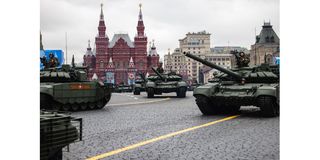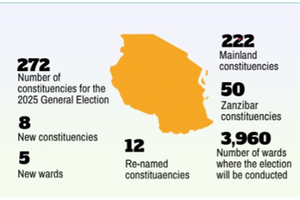Russia accuses EU of undermining WWII victory commemorations

Moscow. Russia has launched a scathing attack on the European Union, accusing it of historical revisionism and disrespect for World War II sacrifices after reports emerged that the EU has discouraged member and candidate states from attending Victory Day celebrations in Moscow on May 9.
The criticism was delivered by Russian Foreign Ministry spokeswoman Maria Zakharova, who claimed the EU's stance amounts to a “revival of Euro-Nazism.” Her comments came after EU foreign policy chief Kaja Kallas reportedly warned EU and aspiring member state leaders against participating in Moscow’s 80th anniversary events marking the Allied victory in World War II.
“If this is true, then Euro-Nazism is being reborn before our eyes,” Zakharova wrote on Telegram. She further likened the EU’s pressure to actions by fascist regimes of the past, accusing the bloc of treating certain nations as “second-class people.”
Among EU leaders, only Slovak Prime Minister Robert Fico has publicly declared his intention to attend the Moscow event. In response to Kallas's warning, Fico called her stance “disrespectful” and questioned whether it amounted to diplomatic intimidation.
“Is Ms. Kallas’s warning a form of blackmail or a signal that I will be punished upon my return from Moscow? I don’t know. But I do know that the year is 2025, not 1939,” he posted on X (formerly Twitter).
Fico maintained that his attendance is an act of historical remembrance, not political alignment. “I will go to Moscow to pay tribute to the thousands of Red Army soldiers who died liberating Slovakia, as well as to the millions of other victims of Nazi terror,” he said.
Meanwhile, tensions have also erupted in Germany, where authorities have reportedly instructed organizers of local Victory Day events to exclude Russian and Belarusian representatives. According to Berliner Zeitung, internal German Foreign Ministry memos advised institutions to bar delegates from Moscow and Minsk from commemorations marking the end of WWII.
Zakharova condemned the reported German decision, accusing Berlin of replicating the discriminatory tactics of its Nazi past. “The ideological heirs and direct descendants of Hitler's executioners will ‘expel’ Russians from Victory Day celebrations—this is a blatant insult,” she said.
She went further to draw historical parallels, referencing Nazi Germany’s Einsatzgruppen—death squads responsible for some of the worst atrocities during the war—as a disturbing comparison. “Expelling people based on nationality from a commemoration of the defeat of Nazism replays the same inhumane practices,” Zakharova argued.
Victory Day, celebrated annually on May 9, marks the 1945 surrender of Nazi Germany and the end of World War II in Europe. It holds deep historical and emotional significance in Russia and across the former Soviet Union, which lost an estimated 26.6 million lives in the war.
The controversy underscores growing geopolitical divisions in Europe, with historical memory now caught in the crossfire of diplomacy and ideology. As commemorations unfold, the shadow of the past continues to shape political narratives across the continent.




